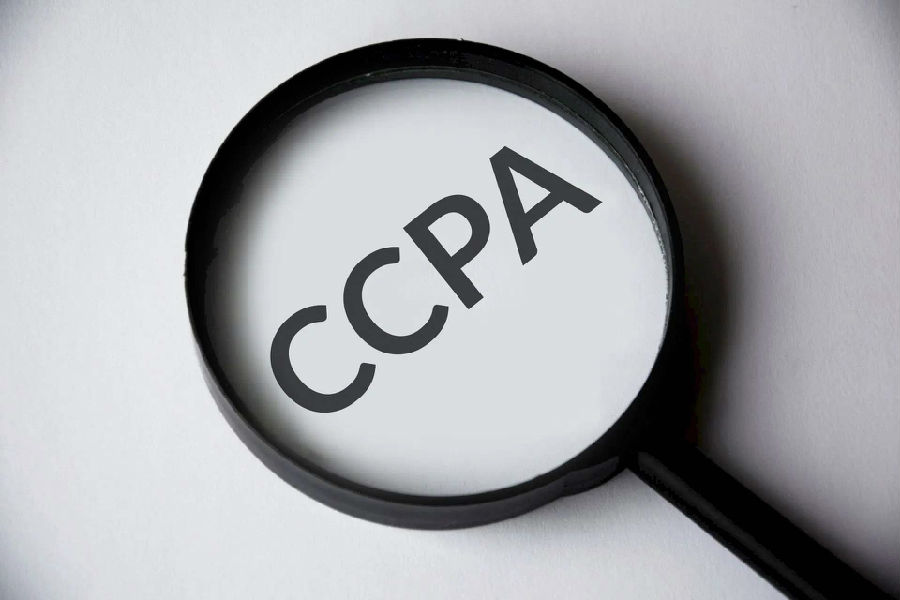(单词翻译:单击)
听力文本
America's Strongest Digital Privacy Law Takes Effect in California
America's strongest digital privacy law has taken effect in California.
The law, known as the California Consumer Privacy Act (CCPA), requires businesses to inform consumers about the ways in which they collect and share personal information.
The law gives consumers the right to request that companies not sell or share their data. It also requires businesses to destroy information already collected if the consumer asks to have it removed.
The law covers the sale of data related to almost any sharing of information that can help a business. This includes information-sharing between companies as well as the selling of data by third-party businesses.
Large online businesses, such as Facebook and Google, are affected by the law. So are major retail companies.
Walmart and Home Depot, among others, say they have added "Do Not Sell My Info" links to their websites to make it easier for consumers to exercise their rights. The businesses said they have also put the information on signs inside their stores.
Digital experts say it remains unclear how the CCPA will affect the kind of targeted advertising commonly used by companies like Facebook and Google.
Facebook collects large amounts of personal data and uses the information to direct ads at different groups of people. The data could include someone's sex, race or religion. Facebook says it does not share that kind of personal information with advertisers.
The experts say that, because the law covers any company that meets conditions for interacting with state residents, the California law might end up serving as a legal model for other states.
"If we do this right in California," said California attorney general Xavier Becerra, the state will "put the capital 'P' back into privacy for all Americans."
California's legislation is the nation's biggest effort yet aimed at fighting against so-called "surveillance capitalism." This term describes the business of profiting from data that most Americans give up — often unknowingly — in exchange for free and often ad-supported services.
In a statement about the CCPA in October, Becerra said that personal data is what is powering today's wealthy digital economy. "It's time we had control over the use of our personal data. That includes keeping it private," he said. Becerra added that he sees the law as "a historic step forward" in putting the people of California "first in the age of the internet."

Some experts have noted that some parts of the law will likely bring legal challenges. One such challenge could center on constitutional concerns related to the many different areas covered by the law. The experts say the law's many exceptions could also be problematic, as well as the fact that it only affects information collected by businesses — not the government.
Critics say the law's exceptions permit companies to keep holding personal information on consumers in some situations, even after individuals request that the data be destroyed. For example, a company can keep personal data if it decides it needs it to finish the sales process. A company could also continue to hold information in a way that the consumer would "reasonably expect" them to.
Joseph Jerome is a policy director at the privacy group Common Sense Media/Kids Action. He told The Associated Press that the law is "more of a 'right to request and hope for deletion.'"
The law offers stronger protections for children. For example, it bans the sale of data on children under 16 without permission.
Digital experts also noted that the law leaves it up to California citizens themselves to exercise their new rights. To make the law effective, consumers will need to take direct action to "opt out" of data sales or request collected information.
Margot Kaminski is a professor of law at the University of Colorado who studies legal technology issues. She told the AP that many people currently do not take the time to read existing privacy agreements because they are long and complex.
Kaminski said, "If you aren't even reading privacy agreements that you are signing, are you really going to request your data?"
I'm Bryan Lynn.
重点解析
重点讲解:
1. take effect 开始实施;生效;
The new law takes effect from tomorrow.
新法令明日起生效。
2. add to 增添;增加;
Shall I add your name to the list?
我可以把你的名字写进名单吗?
3. in exchange for 作为交换;
Would you like my old TV in exchange for this camera?
用我的旧电视机换这架照相机,你愿意吗?
4. opt out of 决定退出;决定不参加;
Employees may opt out of the company's pension plan.
雇员可选择不参加该公司的养老金计划。
参考译文
美国最严格的数字隐私法在加州生效
美国最严格的数字隐私法在加州生效。
这部法律名为《加州消费者隐私法》(简称CCPA),要求企业告知消费者他们收集和共享个人信息的方式。
该法使消费者有权要求企业不要出售或共享其信息。这部法律规定,如果消费者提出删除要求,那企业就要销毁已经收集的信息。
该法涵盖几乎所有可为企业提供帮助的共享信息的数据销售。这包括企业之间的信息共享以及第三方的数据销售。
脸谱网和谷歌等大型网络公司都受到这部法律的影响。主要零售企业也会受到影响。
沃尔玛和家得宝等公司表示,他们在网站上添加了“不要出售我的信息”链接,使消费者可以更方便地行使权利。这些公司表示,他们还在门店的标牌上贴出了这一信息。
数字专家表示,目前尚不清楚《加州消费者隐私法》会对脸谱网和谷歌等公司普遍采用的定向广告产生何种影响。
脸谱网会收集大量个人数据,并用这些信息将广告定向到不同人群。这些信息可能包括人们的性别、种族或宗教。脸谱网表示,其没有与广告商共享这类个人信息。
专家指出,由于涵盖符合“与本州居民互动”这一条件的所有公司,因此这部加州法律最终可能会成为其他州的法律典范。
加州总检察长泽维尔·贝塞拉说:“如果我们在加州做到这点,那将让所有美国人的隐私权重新得到重视。”
加州的立法是美国迄今为止为打击所谓“监视资本主义”所做出的最大努力。“监视资本主义”描述的是一种从数据中获利的商业模式,大多数美国人往往在不知不觉中放弃这些数据以换取免费和通常由广告支持的服务。
贝塞拉在10月份就《加州消费者隐私法》发表的声明中表示,个人信息是当今富饶数字经济的动力。他说:“现在是时候控制我们个人信息的使用了。”贝塞拉还表示,他认为这部法律是“在互联网时代”将加州居民置于首位“所迈出的历史性一步”。
一些专家指出,该法的部分内容很可能引发法律挑战。其中一项挑战可能聚焦该法涵盖的多个不同领域的宪法担忧。专家说,这部法律的许多特例可能也会引发问题,而且该法仅影响企业收集的信息,但不涉及政府收集信息的行为。
批评人士表示,这部法律的特例允许企业在某些情况下保留消费者的个人信息,即使在消费者要求销毁该数据之后。比如,如果企业认为需要这些个人信息以完成销售过程,那就能保留该信息。企业还能以消费者“合理预期”的方式继续保留这些信息。
约瑟夫·杰罗姆是隐私组织“常识媒体/儿童行动”的政策主管。他对美联社表示,该法“更像是‘要求和希望删除个人信息’的权利”。
这部法律为儿童提供更强的保护。比如,该法禁止在未经许可的情况下出售16岁以下儿童的信息。
数字专家还指出,该法让加州公民自已行使新权利。为了让法律有效,消费者需要直接采取行动以“选择退出”数据销售或请求收集信息。
玛格特·卡明斯基是科罗拉多大学研究法律技术问题的法学教授。她对美联社表示,现在许多人不会花时间阅读现有的隐私协议,因为这些协议冗长且复杂。
卡明斯基说:“如果你都不去读自已签署的隐私协议,那你真的会要求保护自已的信息吗?”
布莱恩·林恩报道。
译文为可可英语翻译,未经授权请勿转载!


